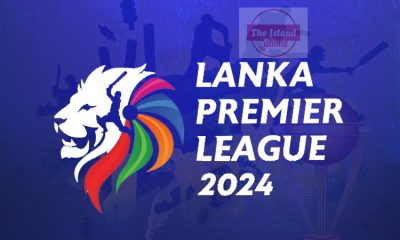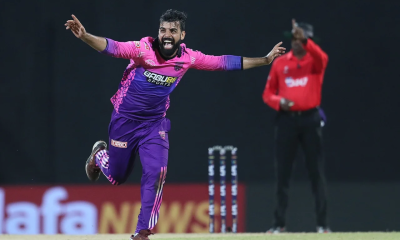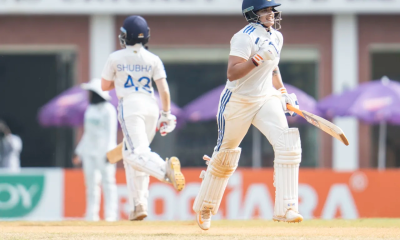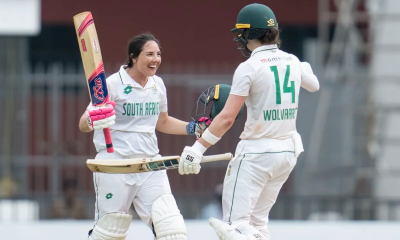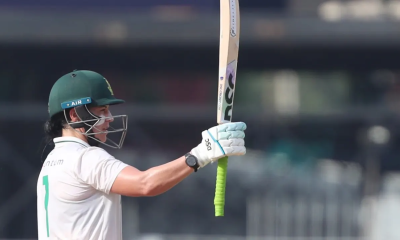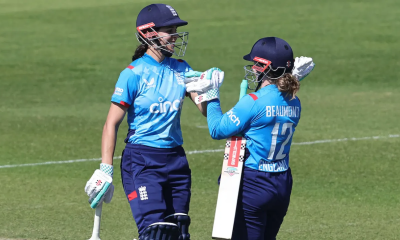Sports
Zimbabwe done and dusted, bigger challenges ahead
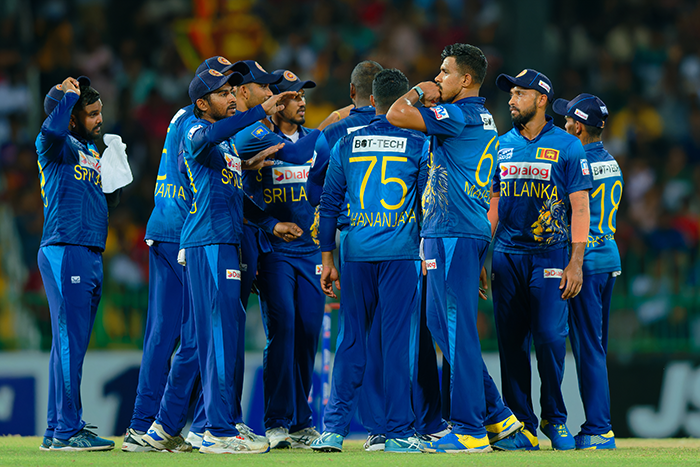
by Rex Clementine
On occasions, Zimbabwe (or Rhodesia as earlier known) have turned the cricketing world upside down. In the 1983 World Cup, they beat a star-studded Australian side. Yes, an Australian side that had Lillee, Thomson, Yallop, Hookes, Wessels, Border and Marsh !
Zimbabwe themselves had some quality players on that occasion. They were captained by that brilliant strategist Duncan Fletcher, who later went onto coach England and India. They also had Dave Houghton, one of the finest batters to come from that country. Then there was Andy Pycroft, who was the Match Referee in the World Cup final in Ahmedabad in November. Kevin Curran was there too. His son Sam Curran is now an England star.
The most notable of them was off-spinner John Traicos. He had debuted for South Africa in 1970 but after South Africa were exiled from cricket due to apartheid, he switched alliance and represented Zimbabwe. That’s not the fun part. When South Africa were readmitted to Test cricket, he went back to play for them at the age of 45. Between his first Test and last Test, there were seven US Presidents from Richard Nixon to Bill Clinton while the Catholic Church had three Popes; Cardinal Montini, Cardinal Luciani and Cardinal Wojtyla.
Zimbabwe created another upset too when in 1992 World Cup they beat England. That Zimbabwe side had Flower brothers and chicken farmer Eddo Brandes, who famously claimed four wickets.
Zimbabwe in that World Cup nearly beat Sri Lanka too. Those days teams rarely chased down targets above 300. Sri Lanka went onto become the first team to do so.
In recent years as well, Zimbabwe have produced some quality talents like Neil Johnson and Murray Goodwin. However, the country suffered setbacks due to political upheavals and Robert Mugabe’s policies saw Zimbabwe being alienated by rest of the world and most white cricketing talents spread across other parts of the world.
Zimbabwe is a vast country unlike ours. It has a total area of 400,000 square kilometers. Their population is only 16 million whereas we have 22 million living in 65,000 square kilometers. The country is rich with natural resources but faced many setbacks during Mugabe’s era.
All fault of course is not Mugabe’s. When he wanted to reclaim the lands owned by white farmers, the British government of John Major had a deal to compensate white farmers. But once John Major’s Conservative Party was gone and Tony Blair’s Labour Party came in, the deal became null and void. And Mugabe was left with little choice. Like Nelson Mandela in South Africa, Mugabe was a freedom fighter but what he did in the latter years were quite despicable and unacceptable.
After economic instability, the country is recovering, and they aren’t doing too bad with the exchange rate being one US Dollar equal to 360 Zimbabwe Dollars.
Coming back to cricket, beating this Zimbabwe side is no big deal though. You keep hearing that this being a competitive opposition, but the truth of course is far from it. They have a very good left-arm seamer in Richard Ngarava while captain Sikandar Raza is a reliable all-rounder. Craig Ervine and Sean Williams are decent batters while the rest of them are making up the numbers.
Zimbabwe recently suffered home series defeats to Ireland and were even beaten by Namibia while being knocked out of this year’s T-20 World Cup after losing to Uganda. Sri Lanka should have cruised past this side but there were too many close games to their liking which sums up the standard of our cricket.
Barring the period between 2007 to 2011, our bowling has always lacked quality. Now the bowling not only lacks quality but among the top five batters hardly anyone bowls, which wasn’t the case earlier.
So, what the team did those days was to put a high premium on fielding. Now fielding has also collapsed and we are a laughing stock in white ball cricket. One good thing is that the new captain is stressing to put more emphasis on fielding. Upul Chandana has been handed the position of Fielding Coach on a temporary basis but it’s high time that he is made permanent in that position. He has been very loyal to SLC, and his innovative methods will help Sri Lanka to achieve desired results.
SLC must be commended for bringing in experts like Jonty Rhodes and Bharat Arun to lift our cricket standards. Rhodes obviously was the best fielder in our generation and players will learn quite a lot from him. However, unless individuals commit themselves, even if you bring Colin Bland from the dead we aren’t going to make improvements.
The upcoming series against Afghanistan will prove to be a different ball game altogether, particularly the white ball series. The Afghans are giving India a good run for their money at present and Sri Lanka will have to be at top of their game.
The Afghan series is followed by a tour of Bangladesh and that too will be quite challenging.
It’s a strange feeling. Sri Lanka toured Australia before the 1996 and 2007 World Cups and a lot of people say that those tours down under toughened the team up and helped them play their best cricket in the World Cup. Pity that we are saying a tour of Bangladesh will be tough these days. That’s how the cookie has crumbled.
Latest News
Nissanka ton stuns Australia, puts Sri Lanka in Super Eights
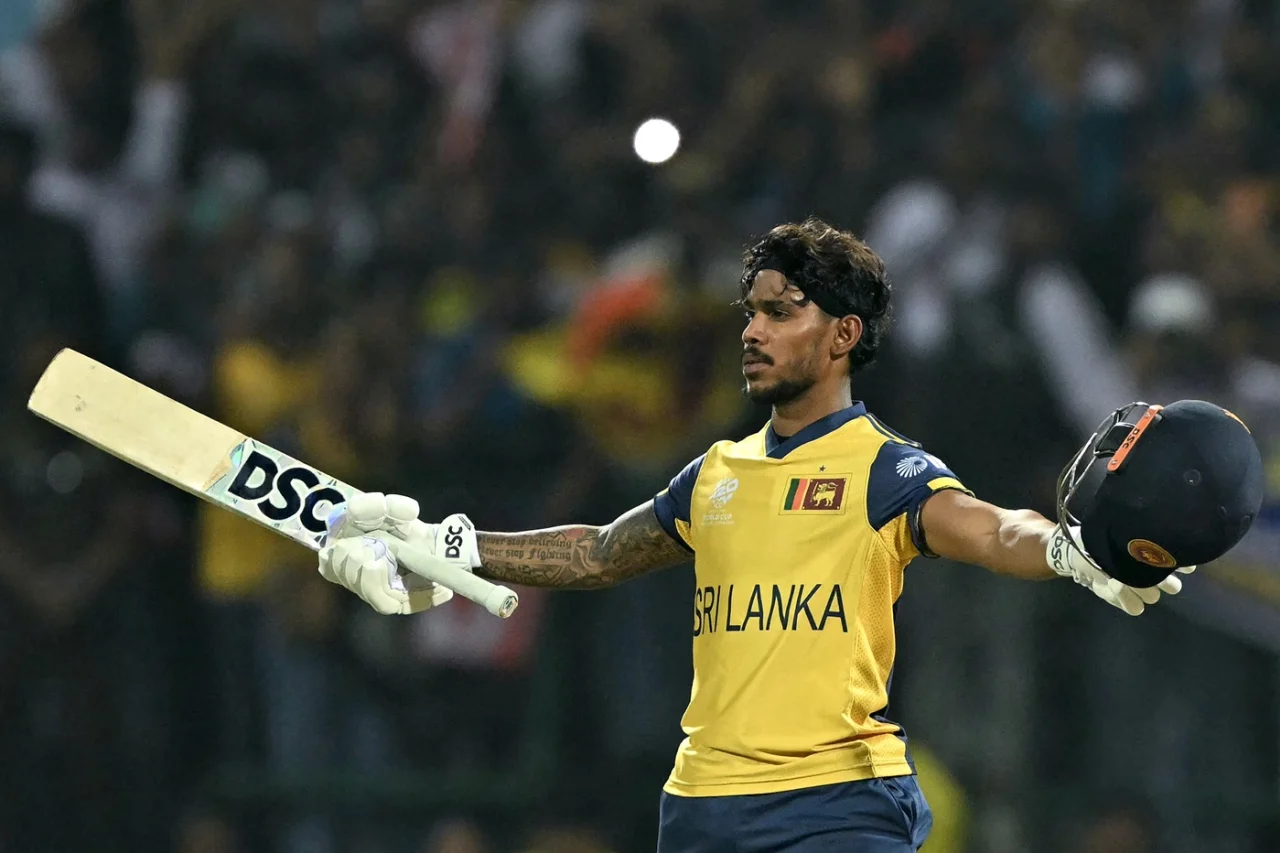
Sri Lanka survived an early onslaught to qualify for the 2026 T20 World Cup Super Eights, leaving Australia right at the exit door and hoping for a miracle.
The returning captain Mitchell Marsh and the returning-to-runs Travis Head were brutal in taking Australia to 104 in the first 50 legal deliveries, but some spectacular fielding and spin bowling helped Sri Lanka take 10 for 77 off the last 70 balls.
In front of a partying full house in Pallekele, Sri Lanka’s two most prolific batters, Pathum Nissanka and Kusal Mendis, brought out both the axe and paper cuts to slice through the chase. Nissanka, who had earlier dropped Glenn Maxwell and then dismissed him with a stunner, went on to score an unbeaten hundred and take Sri Lanka home with two overs to spare.
In the absence of Matheesha Pathirana, who walked off with a calf injury in his first over, their spinners contributed six wickets to go with excellent closing from Dushmantha Chameera. Australia’s lead spinner Adam Zampa, among the best T20 spinners of all time, took no wicket and was lucky to go for only 41 in his four overs.
Brief scores:
Sri Lanka 184/2 in 18 overs [Pathum Nissanka 100*, Kusal Mendis 51, Pavan Rathnayake 2*; Marcus Stoinis 2-41] beat Australia 181/10 in 20 overs [Mitchell Marsh 54, Travis Head 56, Josh Inglis 27, Glenn Maxwell 22; Dushmantha Chameera 2-56, Maheesh Theekshana 1-37, Dushan Hemantha 3-37, Dunith Wellalage 1-33, Kamindu Mendis 1-19] by eight wickets
[Cricinfo]
Latest News
New Zealand eye Super Eight spot against Canada
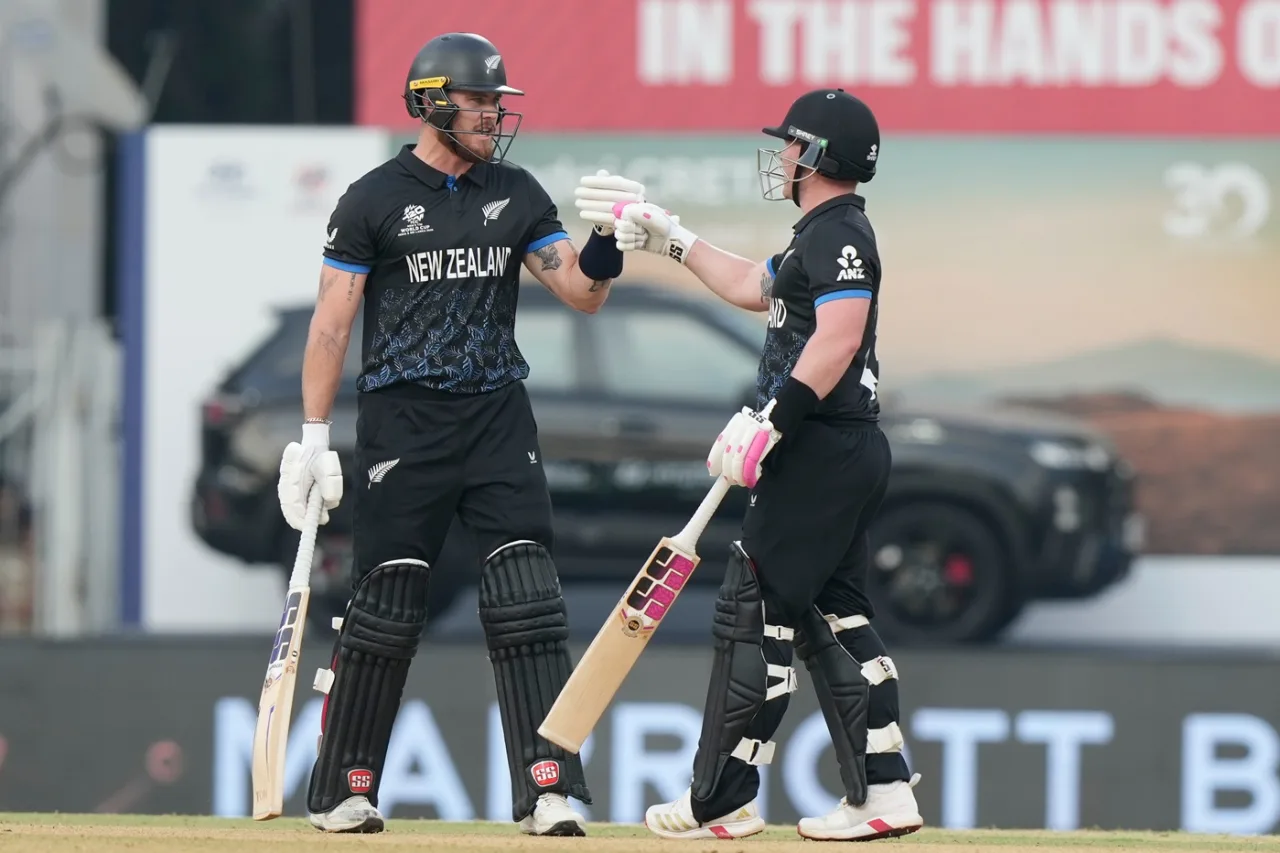
A win against Canada in their first T20I against them on Tuesday will firm up New Zealand’s spot in the Super Eight. This result will also knock out Canada; South Africa have already qualified for the next round from Group D with three wins in as many games.
New Zealand have faced Canada just three times in international cricket so far – each time in ODI World Cups. Their most recent meeting coming in the 2011 edition in Mumbai. They have won all three games and are poised to make it 4-0 against Canada in World Cups, despite the absence of Lockie Ferguson. The fast bowler has returned home for the birth of his first child and is expected to link up with the side ahead of the Super Eight. In Ferguson’s absence, Kyle Jamieson, who wasn’t even in the main squad in the first place, is set to make his T20 World Cup bow.
As for Canada, they had their moments against South Africa and UAE but they have failed to convert those into wins. On Friday in Delhi, they had UAE at 66 for 4 in the 13th over in a chase of 151, but they left the door ajar for Aryansh Sharma and Sohaib Khan to sneak home. Canada can’t afford such slip-ups against New Zealand – and then Afghanistan – if they are to notch up a win in this World Cup.
Kyle Jamieson doesn’t quite have Ferguson’s express pace, but can bang it away on a hard length and stifle the opposition batters. He also has some slower variations in his repertoire and his high-arm release could pose a big threat, especially to batters who are facing him for the first time.
Once known as “Vettori” in Canada’s club cricket circuit, Saad Bin Zafar will run into the team that was once captained by one of his heroes. The Canada left-arm spinner often attacks the stumps and keeps it tight, as his economy rate of 6.02 across 67 T20Is suggests. At 39, Saad knows he won’t be playing the game for long and will be eager to cause a few upsets on the big stage.
Jamieson is set to slot in for Ferguson unless New Zealand want to give veteran legspinner Ish Sodhi a game.
New Zealand (probable): Tim Seifert (wk), Finn Allen, Rachin Ravindra, Glenn Phillips, Daryl Mitchell, Mark Chapman, Mitchell Santner (capt), Jimmy Neesham, Kyle Jamieson, Matt Henry, Jacob Duffy
Canada are likely to play the same XI that lost to South Africa and UAE.
Canada (probable): Dilpreet Bajwa (capt), Yuvraj Samra, Navneet Dhaliwal, Nicholas Kirton, Shreyas Movva (wk), Harsh Thaker, Saad Bin Zafar, Jaskaran Singh, Dilon Heyliger, Kaleem Sana, Ansh Patel
[Cricinfo]
Latest News
Pathirana under injury cloud as he leaves the field early
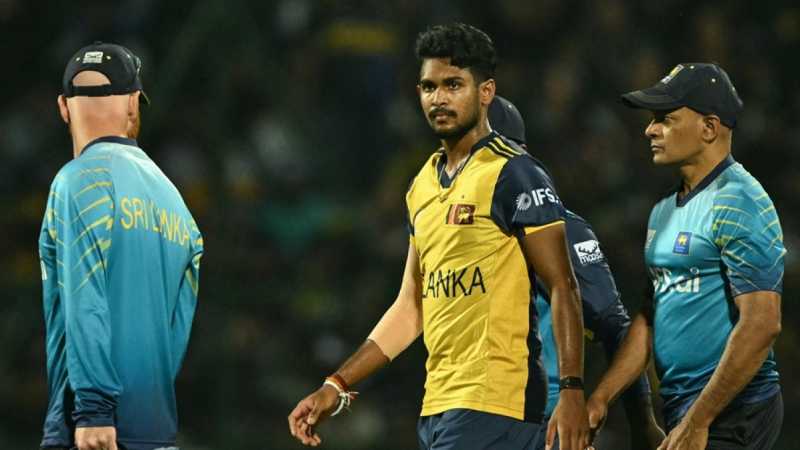
Sri Lanka fast bowler Matheesha Pathirana left the field four balls into his first over, after collapsing to the ground clutching his left calf, and did not return to the field during Sri Lanka’s bowling innings against Australia. Having briefly received treatment from the Sri Lanka physiotherapist immediately after sustaining the injury, Pathirana hobbled off the field with assistance from support staff.
He then spent the majority of the innings being treated in the dressing room. Sri Lanka will likely send him off for scans as soon as the match finishes.
“Matheesha Pathirana experienced discomfort in his left leg calf while bowling during the match and was unable to continue,” a statement read. “He will not bowl further in this game. A scan will be conducted tomorrow to determine the extent of the injury.”
Pathirana had begun well against Australia, bowling two dot balls and giving away three runs (including a wide) in those first four deliveries. The last two balls of the over were delivered by Dasun Shanaka, who gave away a four and bowled a dot.
Pathirana is the quickest bowler in Sri Lanka’s attack, and a key part of their death-bowling plans for the tournament in particular. He is also the second Sri Lanka bowler to come under an injury cloud, with Wanindu Hasaranga already having been ruled out of the World Cup with a hamstring injury of his own.
After this game against Australa, Sri Lanka have another group match to play, against Zimbabwe. They have not earned qualification for the Super Eights yet.
(Cricinfo)
-

 Life style2 days ago
Life style2 days agoMarriot new GM Suranga
-

 Business23 hours ago
Business23 hours agoMinistry of Brands to launch Sri Lanka’s first off-price retail destination
-

 Features2 days ago
Features2 days agoMonks’ march, in America and Sri Lanka
-

 Midweek Review6 days ago
Midweek Review6 days agoA question of national pride
-

 Business6 days ago
Business6 days agoAutodoc 360 relocates to reinforce commitment to premium auto care
-

 Opinion5 days ago
Opinion5 days agoWill computers ever be intelligent?
-

 Features2 days ago
Features2 days agoThe Rise of Takaichi
-

 Features2 days ago
Features2 days agoWetlands of Sri Lanka:


